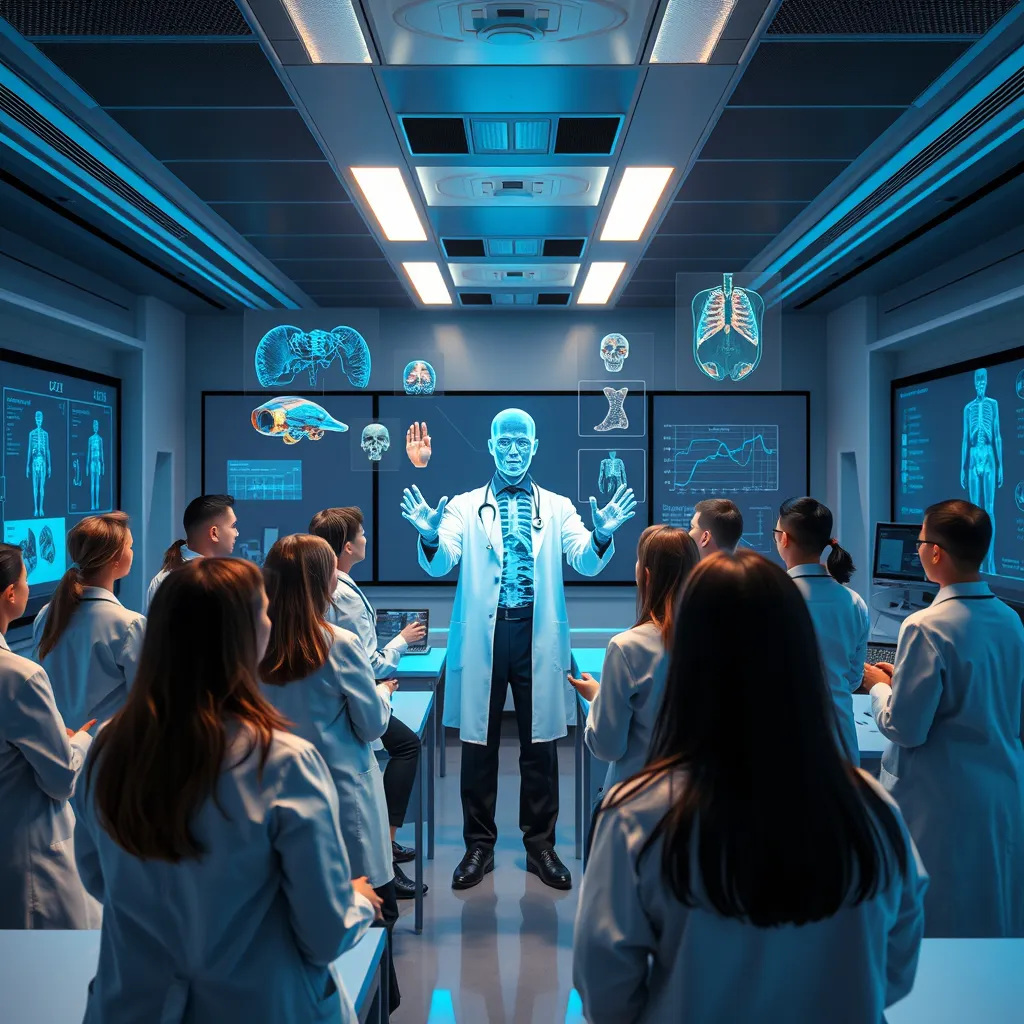5 Revolutionary Ways AI is Transforming OSCE Preparation for Medical Students

5 Revolutionary Ways AI is Transforming OSCE Preparation for Medical Students
Did you know that the average medical student spends over 100 hours preparing for Objective Structured Clinical Examinations (OSCEs)? Yet, despite this significant time investment, many still feel underprepared when facing these crucial assessments. Enter artificial intelligence (AI) – the game-changer that's revolutionizing how medical students prepare for OSCEs.
The OSCE Challenge
OSCEs are a cornerstone of medical education, designed to evaluate clinical competence in a structured, objective manner. However, traditional preparation methods often fall short:
- Limited access to diverse clinical scenarios
- Difficulty in finding willing volunteers for practice
- Inconsistent feedback on performance
- Lack of realistic time pressure during practice
Fortunately, AI is addressing these challenges head-on. Let's explore five innovative ways AI is transforming OSCE preparation, making it more efficient, accessible, and effective for medical students worldwide.
1. Customized Case Generation: Practice Makes Perfect
One of the most exciting applications of AI in OSCE preparation is the ability to generate customized clinical cases on demand.
How it works:
AI algorithms can create unique, tailored OSCE scenarios based on specific parameters. For example, Oscegen's platform allows students to input desired characteristics such as medical specialty, patient demographics, and clinical focus areas.
Key benefits:
- Unlimited diversity: Access a vast array of clinical scenarios, including rare cases.
- Personalized learning: Focus on specific areas of weakness or interest.
- Iterative refinement: Modify case details to explore different clinical pathways.
"The ability to generate and refine cases has been a game-changer for my OSCE prep. I can practice exactly the types of scenarios I need to improve on." - Sarah, 4th-year medical student
2. Realistic Patient Simulations: Practice Anytime, Anywhere
Gone are the days of relying solely on classmates or paid actors for patient interactions. AI-powered chatbots now offer realistic patient simulations 24/7.
How it works:
Advanced natural language processing allows these AI patients to engage in lifelike conversations, responding to questions and exhibiting appropriate emotions and behaviors based on their simulated condition.
Key benefits:
- Constant availability: Practice at any time that suits your schedule.
- Consistent scenarios: Ensure standardized practice experiences.
- Safe learning environment: Make mistakes and learn without fear of judgment.

3. Timed Practice Sessions: Master the Clock
Time management is crucial in OSCEs, where students typically have just 8-10 minutes per station. AI-powered platforms are helping students master this aspect of the exam.
How it works:
Platforms like Oscegen incorporate countdown timers into their simulations, mimicking the time pressure of real OSCE stations.
Key benefits:
- Improved time management: Learn to pace yourself effectively.
- Reduced exam anxiety: Become comfortable with time constraints.
- Realistic exam conditions: Practice in an environment that closely mirrors the actual OSCE.
Pro Tip: Use timed sessions to identify which parts of your clinical approach need streamlining. Are you spending too long on the history and rushing the examination? AI can help you find the right balance.
4. Immediate Feedback and Analysis: Rapid Improvement
One of AI's most powerful features is its ability to provide instant, detailed feedback on performance.
How it works:
AI systems analyze various aspects of a student's performance, including:
- Medical knowledge application
- Communication skills
- Clinical reasoning
- Time management
Key benefits:
- Rapid improvement: Identify and address weaknesses quickly.
- Objective assessment: Receive unbiased feedback on your performance.
- Comprehensive analysis: Get insights into both clinical and soft skills.
5. Adaptive Learning Pathways: Personalized Study Plans
As you practice, AI doesn't just provide feedback – it learns about you, creating a personalized learning experience.
How it works:
AI algorithms track your performance over time, identifying patterns in your strengths and weaknesses. Based on this data, the system can:
- Suggest specific areas for improvement
- Recommend relevant resources or practice scenarios
- Adjust the difficulty of cases to match your skill level
Key benefits:
- Efficient study time: Focus on the areas where you need the most improvement.
- Continuous adaptation: Your study plan evolves as you progress.
- Holistic improvement: Ensure well-rounded preparation across all aspects of OSCE performance.
The Future of OSCE Preparation
As AI continues to evolve, we can expect even more innovative features to enhance OSCE preparation:
- Virtual reality simulations for immersive practice
- AI-powered voice analysis for more nuanced communication feedback
- Integration with wearable devices to monitor stress levels during practice
While AI is transforming OSCE preparation, it's important to remember that it should complement, not replace, traditional study methods and real patient interactions. The goal is to use AI to enhance your preparation, making you more confident and competent when facing real patients.
Ready to Revolutionize Your OSCE Prep?
The future of OSCE preparation is here, and it's powered by AI. Tools like Oscegen are at the forefront of this revolution, offering medical students unprecedented opportunities to practice, learn, and improve.
Are you ready to take your OSCE preparation to the next level? Explore AI-powered tools and discover how they can transform your study experience. Your future patients will thank you for it.
FAQs
-
Is AI-based OSCE preparation as effective as practicing with real people? While AI provides excellent practice opportunities, it's best used in combination with real human interactions. AI offers consistency and availability, but real people provide nuances that AI may not fully replicate yet.
-
How much does AI-powered OSCE preparation typically cost? Costs vary depending on the platform and features. Many offer free trials or tiered pricing. Check out Oscegen's pricing page for current options.
-
Can AI-generated cases cover all medical specialties? Most advanced platforms cover a wide range of specialties. Oscegen, for example, currently offers cases in cardiology, dermatology, gastroenterology, general surgery, neurology, oncology, orthopedics, pediatrics, pulmonology, and urology, with plans to expand further.
-
Is there a risk of becoming too reliant on AI for OSCE preparation? While AI is a powerful tool, it's important to use it as part of a balanced study approach. Combine AI practice with textbook study, peer practice, and, when possible, real patient interactions.
-
How do I get started with AI-powered OSCE preparation? Many platforms offer free trials. Start by exploring options like Oscegen, sign up for a trial, and experience the benefits of AI in your OSCE prep firsthand!